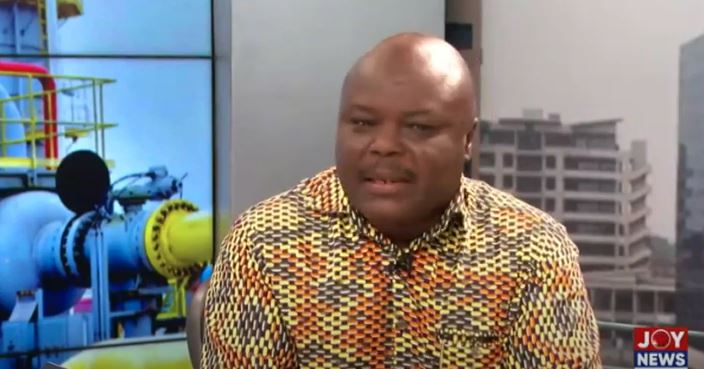Minister for Public Enterprises, Joseph Cudjoe, has said that he is an advocate of fat salaries for public sector workers who perform.
At a press briefing in Accra on Wednesday, Joseph Cudjoe explained, however, that payment of fat salaries becomes an issue when the worker fails to perform his or her duties.
“Maybe you are talking to the wrong person on salaries when it is fat. I openly declare anywhere that I am an advocate for a good salary and if this is bad tell me this is bad…If the person is performing and being paid a good salary, I would clap for the person.
"If the person is not performing and taking that good salary, you exact performance from the person because you are paying the person. So I am a lover of fat salary. You can’t use me to pay people badly, I always speak for people who are not paid well,” he said.
The minister justified his position by indicating that what makes a country wealthy, "is for people to be paid good salaries”.
He added, “when people get good salaries, it is when they can cater for their needs and also save in the financial system then deposits build up in the financial system. [You] give loans to businesses and individuals who need them. So if someone is taking a good salary, the issue is always whether the person is giving an output that reflects the salary, that is all.”

The minister also dispelled suggestions for the sacking of non-performing CEOs of state-owned enterprises stressing the fault may not be entirely theirs.
“They are reporting losses because we are not willing to pay the right prices. Because to report profit means that revenue must be generated, cost should be paid, interests should be generated, taxes, utilities, tariffs, every cost should be paid for and you record profits.
“Their reporting of profits depends on us, not the managers because the manager might be technically competent, professionally savvy and everything, but right pricing or wrong pricing is what would determine their profitability,” he stated.
Meanwhile, the Finance Ministry has revealed that state-owned enterprises reported a GH¢5.3 billion loss in their operations in the 2020 fiscal year.
It added that some SOEs have been reluctant to submit annual accounts since 2017.
To fix the poor state of some of the entities, the Finance Ministry is warning it will no longer support requests for assistance by SOEs that fail to meet the reporting requirements specified in the Public Financial Act.
Deputy Finance Minister, Dr John Kumah, announced this at a forum held by the State Interest and Governance Authority (SIGA) in Accra on Friday, January 28, 2022.
Latest Stories
-
Ghana ranked 7th globally as biggest beneficiary of World Bank funding
8 mins -
IMF board to disburse $360m to Ghana in December after third review
12 mins -
Former Bono Regional NPP organiser donates 13 motorbikes to 12 constituencies
18 mins -
Securities industry: Assets under management estimated at GH¢81.7bn in quarter 3, 2024
23 mins -
Gold Fields Ghana Foundation challenges graduates to maximise benefits of community apprenticeship programme
2 hours -
GBC accuses Deputy Information Minister Sylvester Tetteh of demolishing its bungalow illegally
2 hours -
Boost for education as government commissions 80 projects
2 hours -
NAPO commissions library to honour Atta-Mills’ memory
2 hours -
OmniBSIC Bank champions health and wellness with thriving community walk
3 hours -
Kora Wearables unveils Neo: The Ultimate Smartwatch for Ghana’s tech-savvy and health-conscious users
3 hours -
NDC supports Dampare’s ‘no guns at polling stations’ directive
3 hours -
Police officer interdicted after video of assault goes viral
3 hours -
KNUST’s Prof. Reginald Annan named first African recipient of World Cancer Research Fund
3 hours -
George Twum-Barimah-Adu pledges inclusive cabinet with Minority and Majority leaders
4 hours -
Labourer jailed 5 years for inflicting cutlass wounds on businessman
4 hours

